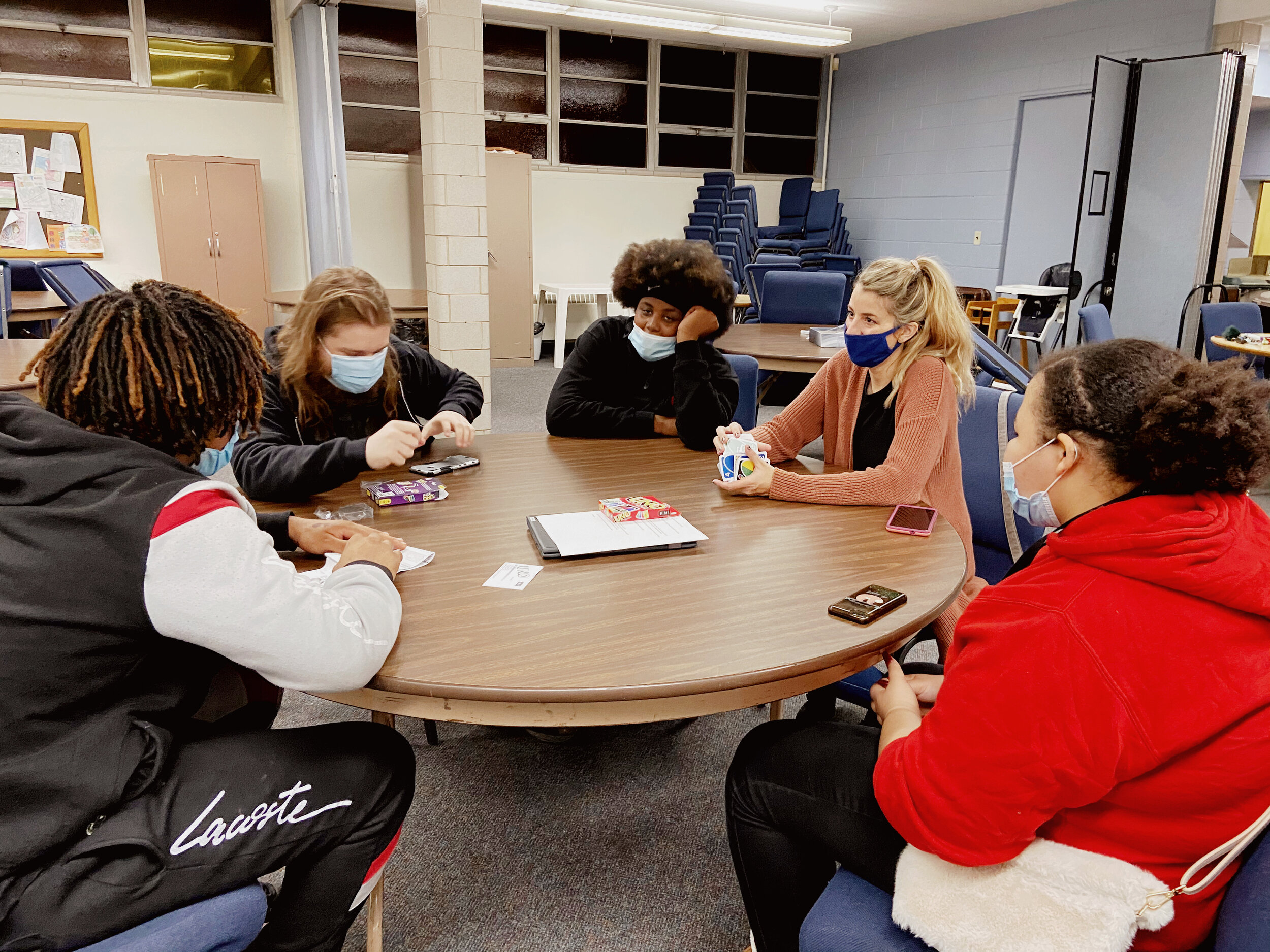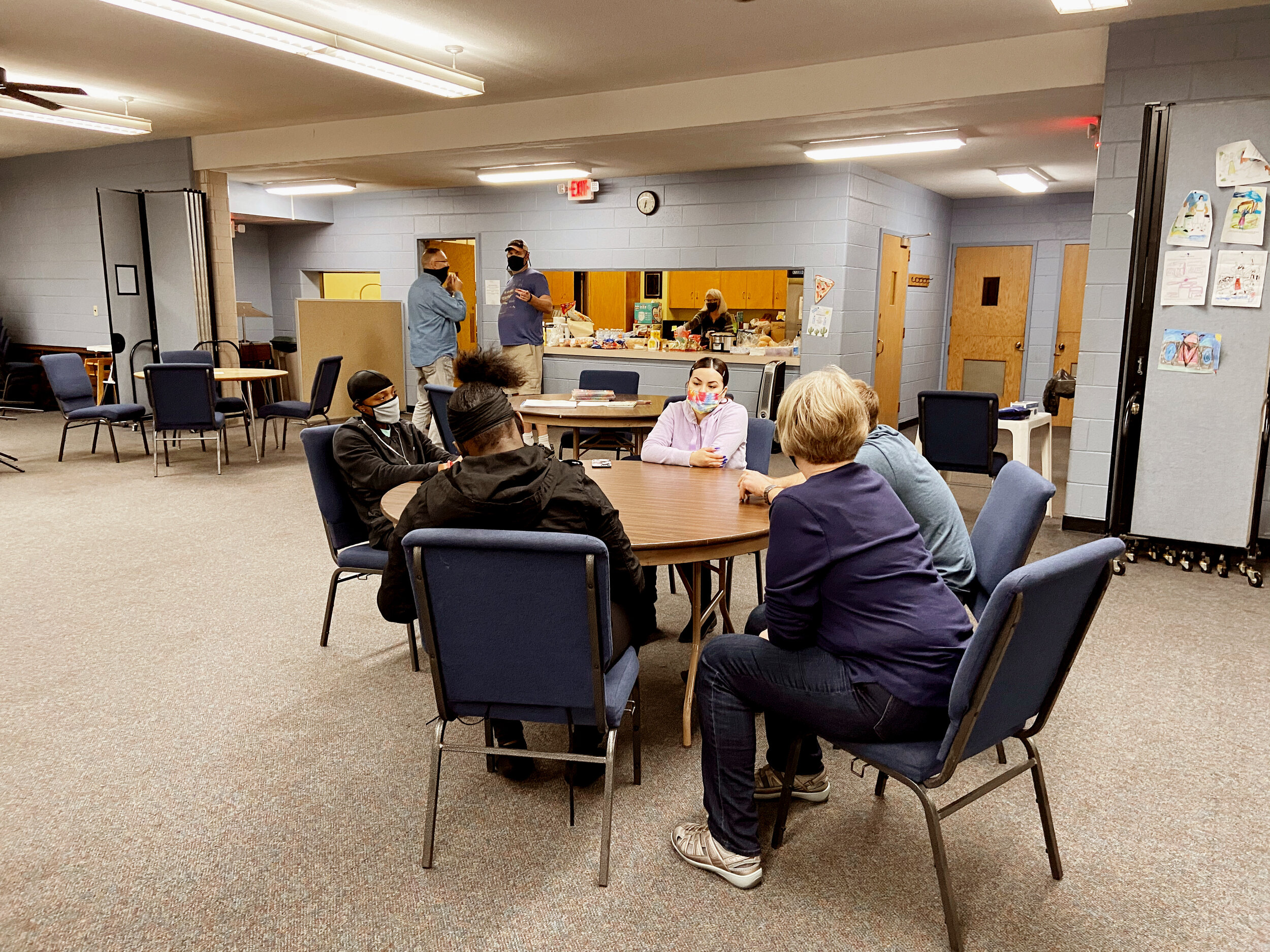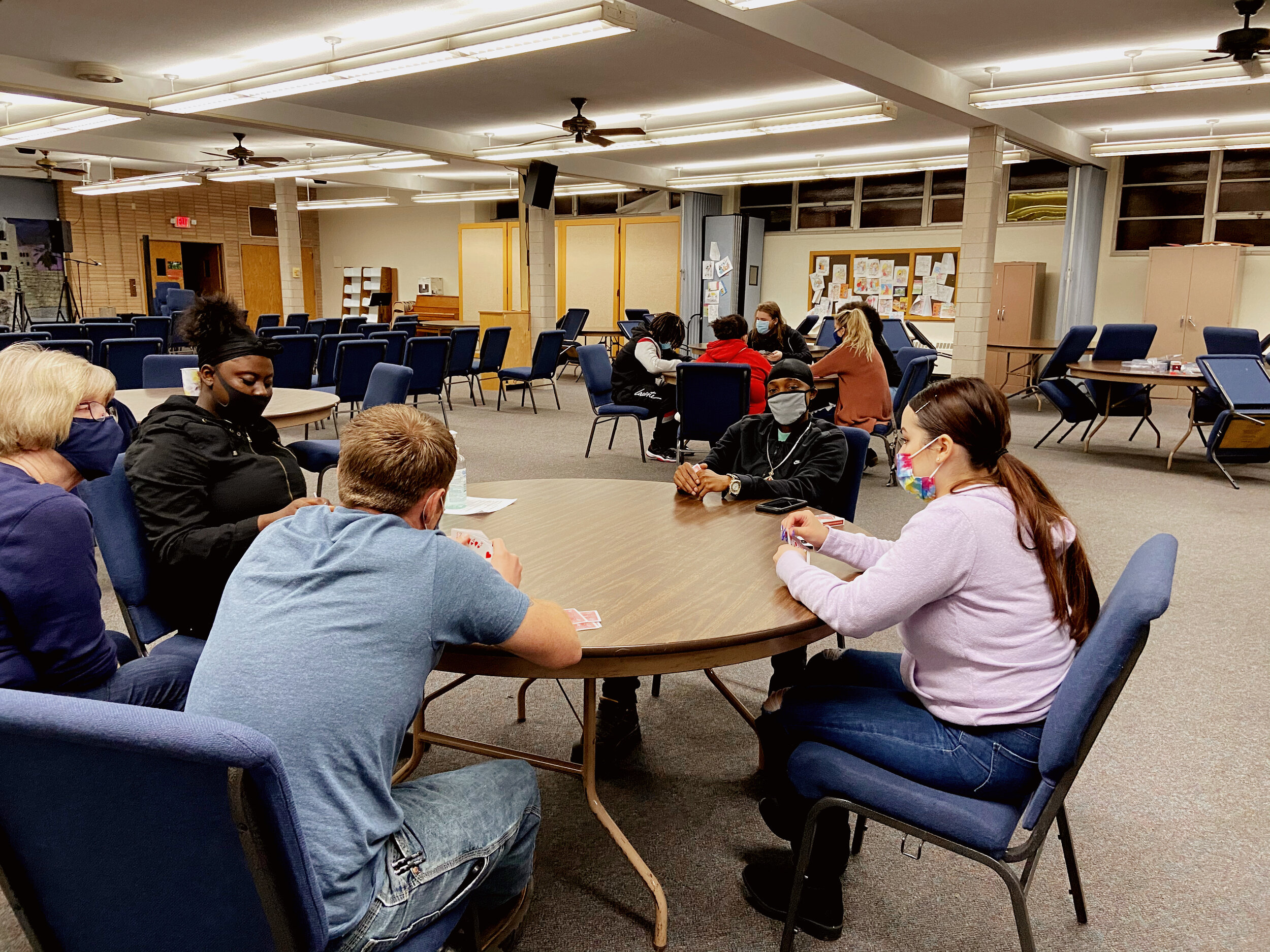By Olle Larson
In many ways, an organization’s culture should be like a well-composed culinary dish, where all of the ingredients of the dish complement one another and the flavors are perfectly balanced. At Stateline Youth For Christ, our goal is that the youth we serve would taste Christ’s love for them through our ministry. To help them taste Christ’s love, a key ingredient in our organizational culture is enduring humility. But what is the proper flavor profile of enduring humility, especially when our zeitgeist’s cultural ethos promotes the elevation of one’s self and a hyper attentiveness to “me and my rights?” In other words, what does it look like for us to practice enduring humility in the Stateline area today?
In order for us to truly embody and reflect enduring humility in our ministry, it requires each of us to recognize that…
1. Enduring Humility begins with seeing our true reflection in God for what it is.
In 2021, it is very easy for us to run from our true reflections and become lost in the elevated self-image we want others to see. Perhaps the easiest place to see this is our social media platforms. On Facebook, we can have the picture-perfect family and portray ourselves as the impeccable significant other, parent, or even grandparent. On Twitter, our thumbs dish out “expert” hot takes in 280 characters or less. Even our Tik Tok account provide us with the opportunity to win “Entertainer of the Year” in our social circles. In the chase for comments, likes, and followers, we often construct a carefully manicured, idealized, and elevated self-image with “me, myself, and I” as the central gravitational force of our lives.
And yet when God enters the frame, a Copernican revolution rocks our carefully constructed universes. The famous pastor-theologian John Calvin once eloquently stated that “we must infer that man is never sufficiently touched and affected by the awareness of his lowly state until he has compared himself with God’s majesty” (1). At the same time, C.S. Lewis once penned that “in God you come up against something which is in every respect immeasurably superior to yourself. Unless you know God as that—and therefore, know yourself as nothing in comparison—you do not know God at all” (2). The point these two theologians make is that once we experience God for who He is, we begin to see ourselves more clearly for who we truly are. This mutual knowledge between knowing God and ourselves is foundational for enduring humility because it makes us aware of our own insignificance and messiness.
Thus, the first step in embodying enduring humility is recognizing our reflection in God and embracing its messiness and our own insignificance. When we take the time to peer into the mirror of Scripture, God’s self-communication of Himself to us, we discover not only that we are God’s image bearers but also begin to recognize the ugliness of our fallen condition and our inability to affect our own rescue (Gen. 1:26-3:24; Eph. 2:1-3; Rom 1:18-3:20, 3:22-23).
At the same time, Scripture marvelously declares the immensity of God as the holy and sovereign creator and ruler of the Universe and His graciousness as the one who rescues creation from the fall and redeem us from our sins through person and work of Jesus Christ, His Son, so that we might be called sons and daughter of God (Gen. 1:1-27; Job 38-41; Ps. 2; 95; Isa. 45:7-9; Matt. 10:29-31; Jn. 1:9-13; Col. 1:16-17; Eph. 2:4-10; Rom. 8:1-17; 11:33-36)! Once we grasp our reflection against God’s reflection in Scripture, our own self-importance and self-centeredness only begins to melt away, and we see our true self starring back at us in the mirror. In seeing our true reflection, it should lead us to conclude with C.S. Lewis that “the real test of being in the presence of God is, that you either forget about yourself altogether or see yourself as a small, dirty object. It is better to forget about yourself altogether” (3). Which brings me to our second point…
2. Enduring Humility has no time to think about our own humility.
While embodying enduring humility begins with recognizing our prideful tendencies and seeing our lowly status against God’s majesty, these things should push us beyond a mere acceptance of these truths into a particular way of thinking. Once again, C.S Lewis is both witty and informative about the mindset of those seeking to embody enduring humility. According to Lewis:
“Do not imagine that if you meet a really humble man he will be what most people call humble nowadays: he will not be a sort of greasy, smarmy person who is always telling you that, of course, he is nobody…[the truly humble person] will not be thinking about humility; he will not be thinking of himself at all” (4).
In other words, the person who models enduring humility will be so paradoxically preoccupied with something else, that he or she won’t have time to think about whether or not that individual is truly humble. But what then becomes the preoccupation of those seeking to model enduring humility?
In this case, the Apostle Paul in his letter to the Philippians is informative and completes the logic of Lewis’ insight. In his appeal to the Philippians to maintain their unity as a body of believers, Paul provides both the Philippian church and us today with the most crystalized depiction of enduring humility. Enduring humility does “nothing from selfish ambition or vain conceit.” Enduring humility “values other above yourselves” (Phil. 2:3 NIV). Finally, enduring humility does not look only to our own interest but also to the interests of others (Phil 2:4). Thus, the reason the truly humble person has no time to think about his or her own humility is because he or she is too busy being focused on others. Yet, what does it look like for the mindset of enduring humility to actually be lived out in our relationships with those around us? If we track a little further with the Apostle Paul in this letter, we discover that…
3. Enduring Humility imitates Christ’s humble servanthood and reflects it to others through sacrificial service.
For the Apostle Paul, as well as any other Christian, Christ is the ultimate example of enduring humility that we try to emulate in our relationships with others. In expounding on the example of Christ, Paul reminds both the Philippian church and us today that Jesus, aka the Second Person of the Trinity/God, did not even consider His own divine status something to be exploited for His own advantage but became a humble and obedient servant for the benefit of others (Phil. 2:6-8 CSB)!! A clear example of this humility and servant-nature is when Jesus, the disciples’ teacher, reversed his role and washed the feet of his disciples, an act so offensive that Peter at first refused and barred Christ from doing this to him (5). Yet the ultimate example of His humility and servanthood was His death on a cross and redeeming God’s people from their sins in total submission to the Father’s will, despite the fact that he was totally undeserving of bearing this punishment (Phi. 2:8).
Paul’s point in rehashing Christ’s humility and servanthood for the Philippians (and by extension us today) is that Christ is the gold standard of enduring humility. In fact, Paul exhorts us and the Philippians to emulate this example by having “the same mindset as Christ Jesus” (Phil. 2:5). As a result, the person seeking to embody enduring humility, imitates Christ, by humbling oneself, serving others sacrificially, and letting God glorifying him or her in His own time.
The Flavor Profile of Enduring Humility
Now we are in a position to examine the flavor profile of enduring humility that will go into the dish that makes up Stateline Youth For Christ’s culture. Enduring humility has a strong and distinct flavor profile. The first thing that hits the tip of the tongue is the distinctly sour recognition of one’s prideful, self-centered tendencies and lowly status when contrasted with God’s majesty that initially puckers one’s lips. In the back of your throat you are hit with an acknowledgement that enduring humility has no time to think about you own humility because the eventual flavor that dominates is an imitation of Christ’s humble servanthood that is reflected to others through sacrificial service.
Bon Appétit
O.T. Larson II.
Sources
John Calvin, The Institutes of Christian Religion, ed. John T. McNeill, trans. Ford Lewis Battles, Library of Christian Classics, vols. 20-21 (Philadelphia: Westminster, 1960) I.1.3
C.S. Lewis, Mere Christianity, (New York: Harper Collins, 2001), 124.
Lewis, 125.
Lewis, 128
Today it may seem odd that Peter refused to have Jesus wash his feet, especially when it has been adopted in wedding ceremonies today as a symbol of serving one another. In the ancient world, foot washing was typically reserved only for slaves and was a very demeaning task as one’s feet were typically crusted in filth. Perhaps the closest equivalent for today would be wiping someone’s backside after relieving one’s self. Edward Klink III, John, Zondervan Exegetical Commentary on the New Testament, vols. 4 (Grand Rapids: Zondervan, 2016), 577-578.














